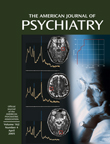Abstract
OBJECTIVE: The authors examined the relationship between maternal antibody to toxoplasmosis and the risk of schizophrenia and other schizophrenia spectrum disorders in offspring. Toxoplasmosis is known to adversely affect fetal brain development. METHOD: In a nested case-control design of a large birth cohort born between 1959 and 1967, the authors conducted serological assays for Toxoplasma antibody on maternal serum specimens from pregnancies giving rise to 63 cases of schizophrenia and other schizophrenia spectrum disorders and 123 matched comparison subjects. Toxoplasma immunoglobulin (Ig)G antibody was quantified by using the Sabin-Feldman dye test. The Ig titers were classified into three groups: negative (<1:16) (reference), moderate (1:16–1:64), and high (≥1:128). RESULTS: The adjusted odds ratio of schizophrenia/schizophrenia spectrum disorders for subjects with high maternal Toxoplasma IgG antibody titers was 2.61 (95% confidence interval=1.00–6.82). There was no association between moderate Toxoplasma Ig antibody titers and the risk of schizophrenia/spectrum disorders. CONCLUSIONS: These findings suggest that maternal exposure to toxoplasmosis may be a risk factor for schizophrenia. The findings may be explained by reactivated infection or an effect of the antibody on the developing fetus. Given that toxoplasmosis is a preventable infection, the findings, if replicated, may have implications for reducing the incidence of schizophrenia.



